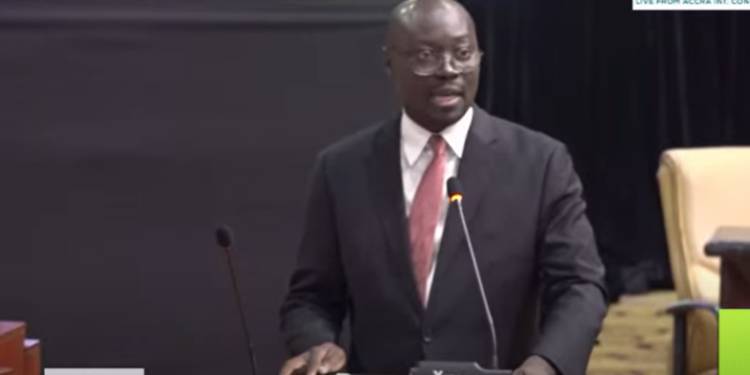The government’s decision to acquire ships for the Ghana Navy at an estimated cost of €140 million has sparked intense debate in Parliament, with Minority Leader Dr. Cassiel Ato Forson strongly opposing the move. The proposed purchase, which surfaced just weeks before a change in government, has raised concerns about its timing, necessity, and the financial burden it might impose on the incoming administration.
During a heated parliamentary session on December 16, Dr. Forson criticized the acquisition plan, describing it as both unnecessary and ill-advised, given Ghana's current economic challenges. He argued that committing such a significant expenditure at this time would only worsen the country's debt burden, potentially adding up to $350 million.
Dr. Forson warned that the Minority in Parliament would actively resist any tax waivers or loans associated with the transaction. “There are obvious attempts by this government to saddle the incoming administration with a huge financial strain. This €140 million purchase is ill-timed, and if the ships are truly essential, let the new government handle it,” he said.
The Minority Leader also urged the government to exercise financial prudence during its final days in office, emphasizing that fiscal decisions made now could severely constrain the economic flexibility of the next administration.
“It is unacceptable for a government that is leaving office in three weeks to commit the country to such a financial burden. If this is an urgent matter of state, allow the new administration to address it. Tax exemptions tied to this deal will impose a fiscal burden on the next budget, and we cannot allow that to happen,” Dr. Forson added.
Defence Minister Defends the Purchase
In response, Defence Minister Dominic Nitiwul defended the acquisition, asserting that the ships are vital for the operational capacity of the Ghana Navy. He explained that the International Monetary Fund (IMF) had already approved the government’s request to secure a loan for the purchase, a move he claimed was necessary given the country’s lack of military aircraft and ships.
“These ships are crucial for national security. The IMF approved the loan because it recognized the urgency of addressing our military’s equipment needs. If the Minority believes this decision should wait for the next administration, we have no problem with that,” the Defence Minister stated.
Nitiwul highlighted the strategic importance of the ships, emphasizing that they were being purchased from France under favorable conditions. He urged Parliament to consider the broader implications for national security rather than focusing solely on the financial aspect of the transaction.
Broader Implications
The debate has sparked broader conversations about governance during transition periods and the ethical responsibilities of outgoing administrations. Critics argue that significant financial commitments, especially those involving long-term debt, should be deferred to the incoming government to ensure accountability and fiscal responsibility.
Supporters of the purchase, however, contend that national security needs should transcend political transitions. They argue that delaying the acquisition could compromise the Navy’s ability to safeguard Ghana’s territorial waters, particularly in the face of growing threats such as piracy and illegal fishing.
A Divided House
The government’s ship purchase plan has left Parliament deeply divided. While the Majority insists the acquisition is in the national interest, the Minority remains unconvinced, citing concerns over timing, cost, and transparency.
Dr. Forson’s remarks underscore a broader frustration with what the Minority perceives as last-minute financial commitments by the outgoing administration. His call for restraint reflects a desire to protect the economic stability of the incoming government while ensuring that all major decisions undergo thorough scrutiny.
For now, the fate of the €140 million ship purchase hangs in the balance, as Parliament continues to deliberate on the associated tax exemptions and loan agreements. The issue has become a litmus test for the country’s approach to governance during political transitions, with implications that could shape future policies.
As the debate unfolds, many Ghanaians are watching closely, aware that the outcome could set a precedent for how governments navigate sensitive financial and security decisions in times of change. Whether the ships are ultimately procured or deferred, the discussions in Parliament highlight the delicate balance between national priorities and fiscal responsibility.



